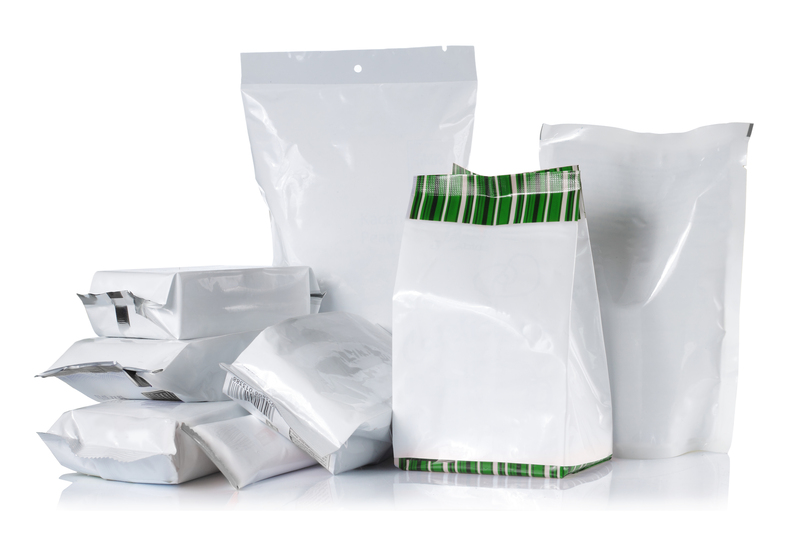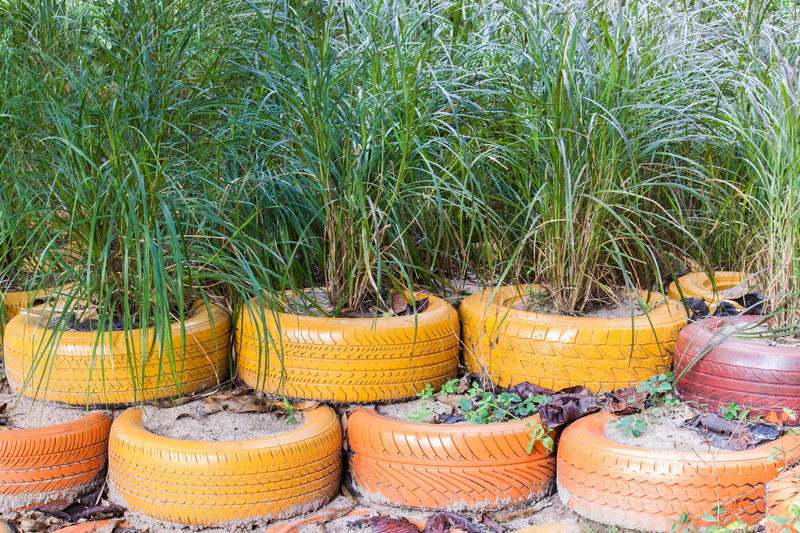Transforming PPE Waste Disposal Into an Eco-Friendly Habit
The surge in Personal Protective Equipment (PPE) usage during recent global health crises has spotlighted a significant and pressing environmental challenge: PPE waste disposal. With billions of masks, gloves, and gowns discarded daily, our planet faces mounting threats from improper disposal practices. Transforming PPE waste disposal into an eco-friendly habit is vital to safeguarding our environment while continuing to prioritize public health.

Understanding the Impact of PPE Waste on the Environment
PPE, such as surgical masks, respirators, face shields, gloves, and gowns, is primarily made of plastics--materials designed for one-time use and non-biodegradable by nature. The convenience and necessity of personal protective equipment during pandemics have inadvertently exacerbated plastic pollution. Understanding the environmental ramifications is the foundation of any sustainable solution.
The Magnitude of PPE Waste
- Estimates suggest that globally, over 129 billion face masks and 65 billion gloves are used and discarded monthly.
- PPE items are found littering urban streets, beaches, and natural habitats, putting wildlife at risk and contributing to microplastic accumulation.
- The improper disposal of contaminated PPE can spread diseases alongside harming the environment.
Ecological Consequences of Improper Disposal
PPE made from polypropylene, polyethylene, and vinyl persists in the environment for centuries. When not disposed of responsibly, PPE waste accumulates in landfills or enters natural ecosystems, causing:
- Wildlife entanglement and ingestion, which endanger marine and terrestrial animals.
- The breakdown of plastics into microplastics that enter the food chain.
- Release of toxic chemicals into soil and water systems.
Therefore, transforming our approach to PPE disposal is critical to mitigate ongoing harm and promote environmental stewardship.
Best Practices for Eco-Friendly PPE Disposal
Making sustainable PPE waste management a daily habit involves informed decision-making and adopting accessible eco-conscious practices. Here's how individuals, businesses, and communities can make a real difference:
1. Prioritize Reusable PPE Where Feasible
- Switch to reusable cloth masks that can be washed and disinfected, minimizing single-use waste.
- Employ face shields and goggles that are durable and designed for multiple uses.
- Encourage innovation--businesses can invest in PPE crafted from biodegradable or recyclable materials.
Note: Always verify the effectiveness and standards of reusable PPE, especially in medical or high-risk environments.
2. Educate About Proper PPE Disposal Channels
- Never litter PPE: Disposed masks and gloves should never end up in public spaces or nature.
- Utilize designated PPE waste bins or biohazard containers if available, particularly in healthcare or public settings.
- Double-bag and securely tie used PPE to prevent contamination before placing it in the trash.
PPE contaminated with bodily fluids should be separated and handled per local hazardous waste protocols. Local governments and organizations must raise awareness and install well-marked PPE disposal stations.
3. Encourage PPE Recycling Initiatives
Though recycling PPE is challenging due to contamination risks and mixed materials, innovative recycling programs are emerging:
- Some companies specialize in collecting and processing PPE waste for conversion into energy, construction materials, or new products. Seek out local PPE recycling drives or partner with specialized firms.
- TerraCycle and similar entities offer collection collection points for businesses and communities, recycling masks, gloves, and other items responsibly.
- Governments can incentivize private sector innovation in PPE recycling technology.
4. Promote Behavior Change and Policy Support
Transforming PPE waste disposal into a sustainable practice requires:
- Frequent public service messaging on eco-friendly PPE habits.
- Policy support: Regulations encouraging proper labeling, manufacturer responsibility, and biodegradable PPE development.
- Collaboration between industries, governments, and NGOs to scale impact and share best practices.
The Role of Eco-Friendly Innovations in PPE Waste Management
Technological and material advancements are paving the way for a future where PPE waste disposal is inherently green. Here are some breakthroughs and promising ideas:
Development of Biodegradable PPE
Scientists and manufacturers are exploring plant-based polymers, chitosan, and other biodegradable materials for masks and gloves. These products can decompose naturally within a few months, slashing the environmental footprint associated with traditional PPE.
- Biodegradable masks made from corn starch, bamboo fibers, or cellulose are available in various markets.
- Research continues to ensure these alternatives offer comparable protection and durability.
Advanced PPE Recycling Processes
- Pyrolysis and chemical recycling can convert used PPE into fuels or raw materials for new products.
- Mechanical recycling is feasible for uncontaminated items, especially face shields and goggles.
Encouraging these technologies through public investment and industry participation is crucial to expanding their reach and effectiveness.
Upcycled PPE Products
Creative entrepreneurs are upcycling PPE components into road surfacing materials, park benches, and building bricks. These applications extend the lifecycle of PPE waste and diminish the burden on landfills.
Practical Steps for Individuals: Becoming Part of the Solution
Every person can contribute to transforming PPE waste disposal into a green habit. Here's how:
Adopt Responsible PPE Choices
- Choose eco-friendly options when available--opt for reusable or biodegradable PPE whenever practical.
- Support companies and retailers who promote sustainable PPE options.
Dispose of PPE Correctly
- Never flush masks or gloves down toilets or sinks; this can clog systems and pollute water bodies.
- Carry a spare bag for temporary storage of used PPE until you can dispose of it properly.
- Follow local authorities' guidelines on hazardous waste and recycling.
Advocate and Educate
- Share eco-conscious PPE disposal tips on social media and in your community.
- Encourage your workplace or school to implement sustainable PPE management policies.
- Participate in community clean-ups or campaigns focused on PPE waste collection.
Transforming PPE Waste Disposal Habits in Organizations
Workplaces, schools, and healthcare facilities can lead the way in sustainable PPE waste strategies:
- Set up labeled PPE waste collection bins at prominent locations.
- Partner with certified recyclers and waste management companies for responsible disposal.
- Conduct staff training on best practices for minimizing and segregating PPE waste.
- Implement procurement policies favoring eco-friendly PPE suppliers.
- Communicate progress and impact regularly to inspire continuous improvement.
Future Trends: Making Sustainable PPE Disposal the New Norm
With growing environmental awareness and regulatory shifts, the landscape of PPE waste disposal is poised for transformation. Important future trends include:
- Government mandates for extended producer responsibility (EPR), which require manufacturers to ensure lifecycle management of their PPE products.
- Growth of circular economy models, where used PPE is continually reclaimed and repurposed.
- Increase in biodegradable PPE supply chains and more accessible recycling infrastructures.
- Wider public participation in sustainable disposal programs, driven by education and incentives.
It's likely that integrating eco-friendly PPE disposal into daily life will become as instinctive as recycling paper or plastic bottles. This shift will rely on widespread collaboration between individuals, industries, and governments.

Conclusion: Be the Change for a Greener Planet
Transforming PPE waste disposal into an eco-friendly habit is essential for halting the spread of pollution and preserving natural resources for future generations. Each small step--be it proper disposal, opting for reusable products, or supporting innovative recycling initiatives--collectively makes a tremendous impact.
As we continue to protect ourselves and our communities, we must also honor our responsibility toward the planet. By creating new habits and demanding sustainable solutions, we can all help turn the tide against PPE-related pollution. Start today by making conscious choices--because every eco-friendly action counts.
Frequently Asked Questions about Eco-Friendly PPE Waste Disposal
Why is PPE waste an environmental concern?
PPE is primarily made from plastics, which take hundreds of years to degrade. Improperly discarded PPE contaminates land and water, endangers wildlife, and contributes to microplastic pollution.
Can all types of PPE be recycled?
Not all PPE can be recycled using conventional facilities due to contamination risks and mixed material composition. Specialized recycling programs exist for certain items. Always check with local authorities and recycling providers.
What can I do to support eco-friendly PPE waste disposal?
- Use reusable or biodegradable PPE when possible.
- Dispose of single-use PPE responsibly in dedicated bins.
- Participate in or organize PPE recycling efforts within your community.
Are biodegradable PPE products as effective as traditional ones?
Many biodegradable options offer comparable protection, but always check their certifications and safety standards, especially for medical environments.
How can businesses reduce their PPE waste footprint?
- Implement clear disposal and recycling policies.
- Procure PPE from sustainable suppliers.
- Train staff and engage in continuous environmental improvement initiatives.
By transforming PPE waste disposal into an eco-friendly habit, we are not just keeping ourselves safe--we are also preserving the planet for generations to come. Let's act today!